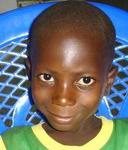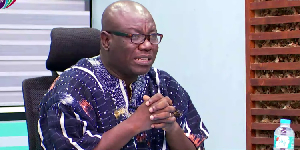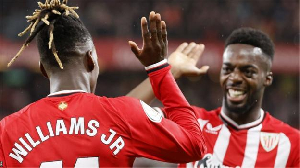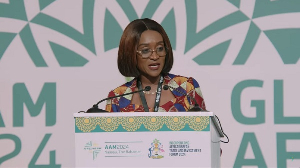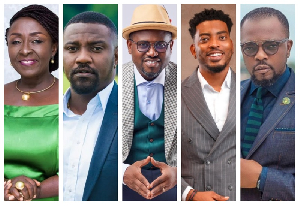Sold into Slavery - The little boy that Oprah could not forget - A Rejoinder
For any Ghanaian, especially in the Diaspora, who watched the Oprah show on Friday, February 9, 2007 titled “The Little boy that Oprah could not forget”, loss for words will probably be the reaction to the program. Whereas the story is heartbreaking, the images haunting, perhaps the greater challenge is the fact that for some of us, all this seems so surreal, inflicting a convicting indictment on our souls. My family sat and watched this program and with disdain, chagrin and unbelief, woke up to the grim realization that we can hardly pat ourselves on the back as a nation for strides made since independence, when such insidious, neo-slavery persists.This is a quote from Richard Danziger—the head of counter-trafficking at International Organization of Migration (IOM) who appeared on the show. “The government of Ghana doesn't have enough resources to fight the problem on its own.” He says IOM uses donation money to pay for salaries for counselors, to aid in the rescues of children and to fund the rehabilitation period the children undergo. Richard estimates that the number of children still enslaved in Ghana is in the high hundreds to low thousands. "This has been going on for decades," he says. "What has started as a sort of apprenticeship has now moved into what we call child trafficking or a form of slavery— just through the change in society, through the extra poverty
The practice may have evolved as a basis of apprenticeship but when did 4-year old become apprentices to any vocation, let alone, a vocation that is as grueling for a mature person as can be. The show documents kids as young as 4 years old, waking up at 4am to go fishing in leaky canoes on the Volta lake, while the ‘master ‘sleeps. The kids are fed once a day and work ends at about 7pm (see www.oprah.com and Ghanaweb.com link Ghanaians Abroad).
In the wake of the preparations for the Ghana @50 celebrations with the Joseph Project vaunted as a paragon of our emancipation from slavery and colonialist servitude, this is a travesty. Ironically, this year, Great Britain is remembering the 200th anniversary of the abolition of slavery in that nation; and in a few weeks a movie “Amazing Grace” based on the true story of William Wilberforce who fought to abolish the British slave trade is going to be released. The timing of the Oprah’s telecast could not have anymore fortuitous.
The acknowledgement by the Government of Ghana of the problem and the argument of insufficient resources to combat the practice is hardly tenable. The moralistic obligation must overrule any consideration of resources. It is an issue of resolve and the panacea must be devoid of any tribalistic tendencies. The practice, which is reminiscent of the Trokosi, is wrong wherever it occurs – North, Volta, Central, Brong-Ahafo etc.
This ‘practice’ of child slavery and any form of slavery must be seen by all as unacceptable, inhumane and frankly, criminal. We suggest that the practice be criminalized and perpetrators be brought to book. Parliament should enact strong laws to deter this despicable practice. This should complement the education of the society over the ills of the practice in the same manner the authorities are regarding Child and Spousal Abuse. There should be exposure of the issue (as we believe many are not aware of such practice in our society) with attendant publicity comparable to the campaign against AIDS.
For those of us in the Diaspora, this is a challenge to develop the Biblical “Nehemiah” approach to the rebuilding of our Nation. What Pam Cope of Missouri and her family, have and continue to do for the children redeemed from slavery should motivate us to make a difference for there is still the Power of One. Individuals, families, groups and organizations and the plethora of Ghanaian churches overseas can adopt communities in Ghana to foster growth, development and general well being of the populace. There are well meaning, honest Ghanaians at home who care enough to be constructive partners with us to do this. This could be our ‘venture capital’ towards the nation at this juncture.
We have seen first hand, the impact of our own yearly short-term Medical, Educational and Evangelistic undertaking to Ghana as we run free Medical clinics, Women’s Health, Youth programs in elementary and high schools as well as ministry to the churches with an emphasis in 2006 on maximizing the potential of the youth and sexual abuse, an almost taboo subject in the society. Ours is just one of many undertaking similar ventures.
It is time for us to transcend criticizing the motherland and it is time to invest in and rebuild our nation and YES, there is HOPE for our nation and for Africa.





